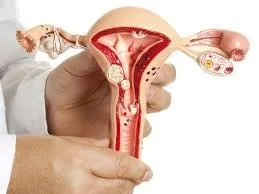Heavy Periods
Heavy periods, which is medically known as menorrhagia, is the excessively heavy or prolonged menstrual bleeding, result in passing large blood clots, and disruptions to daily life
Symptoms of Heavy Periods:
- Needing to change sanitary products every 1-2 hours for several hours.
- Needing to use double sanitary protection.
- Waking up during the night to change sanitary products.
- Passing blood clots larger than a quarter.
- Menstrual bleeding lasting longer than 7 days.
- Limiting daily activities due to heavy flow.
- Feeling tired, fatigued, or short of breath from blood loss, indicating potential anemia.

Heavy Periods
Causes
Heavy periods can stem from various factors, including:
Heavy periods can stem from various factors, including:
- Hormonal Imbalances: Fluctuations in hormones can cause the uterine lining to thicken more than usual.
- Uterine Growths: Noncancerous growths like fibroids and polyps can lead to heavy bleeding.
- Adenomyosis: This condition occurs when endometrial glands grow into the uterus’s muscular walls, causing the uterus to enlarge.
- Endometriosis: While not always causing heavy bleeding, it can be associated with painful and heavy periods.
- Medical Conditions: Thyroid problems, liver or kidney disease, and inherited bleeding disorders like Von Willebrand’s disease are possible causes.
- Medications: Some medications can contribute to heavy periods.
- Adolescent Girls: Newly menstruating girls within the first 1.5 years of their first period are more prone to heavy bleeding.
Meet Our Doctor
Our Consultant

Dr. Shivani Chandan L
Accomplished Gynaecologist and Laparoscopic Surgeon
